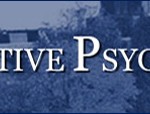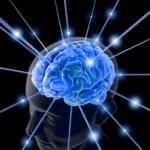Drug and alcohol cravings have been proven to affect cognitive performance (study participants demonstrate slower reaction times, increased levels of distraction and impaired working memory skills when exposed to craving inducing stimuli). Given the parallels between substance abuse and binge-eating …
A Constructive-Developmental Look at Walt Disney and Childhood Magic
Abstract Robert Kegan’s constructive-developmental theory acknowledges an evolving complexity of the subject-object relationship over the course of personal development. Kegan’s ordering system ascends from First to Fifth according to this complexity; young children begin at the First order, while very …
Positive Psychology: The Basics
From a field focused on identifying, classifying and solving problems, positive psychology has emerged as a science devoted not to studying the bad, but encouraging the good. What is the definition of positive psychology? Positive psychology was founded by Marty Seligman in …
Antidepressants and the Placebo Effect
“The difference between the effect of a placebo and the effect of an antidepressant is minimal for most people,” says Irving Kirsch, associate director of the Placebo Studies Program at Harvard Medical School. During a 2012 interview taped for 60 …
Anxiety and the Bible
What is anxiety? When we experience or perceive challenges to our well-being that exceed our ability to cope, the psychological condition that results is called stress. According to the National Institute of Mental Health, anxiety is a normal reaction to stress. Generally defined, …
Meditation and Gray Matter Increases
Posting on the New York Times health blog, Well, Sindya N. Bhanoo explores How Meditation May Change the Brain. Citing research from the January 30, 2011 issue of “Psychiatry Research: Neuroimaging” (helmed by lead author Britta Hölzel, a psychologist at Massachusetts …
- « Previous Page
- 1
- …
- 5
- 6
- 7
- 8
- 9
- Next Page »







